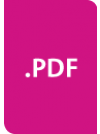The enforcement of liquor licensing laws by police and regulatory officials is intended to keep drinking environments safe, contribute to the reduction of liquor abuse, prevent excessive consumption of alcohol, and prevent the sale of alcohol to minors.
In Wellington, the enforcement of licensing laws involves regular visits to licensed premises by police and regulatory officials. The present study sought to test the effectiveness of these visits to licensed premises, by using an interrupted time series quasi-experimental approach.
Police formed a specialist Liquor Policing Unit (LPU) of six staff to achieve the heightened levels of enforcement. The impact of these interventions was compared to the impact of “normal” enforcement activity during the month preceding the first intervention, the intervening two months between interventions and during the month following the second intervention.

